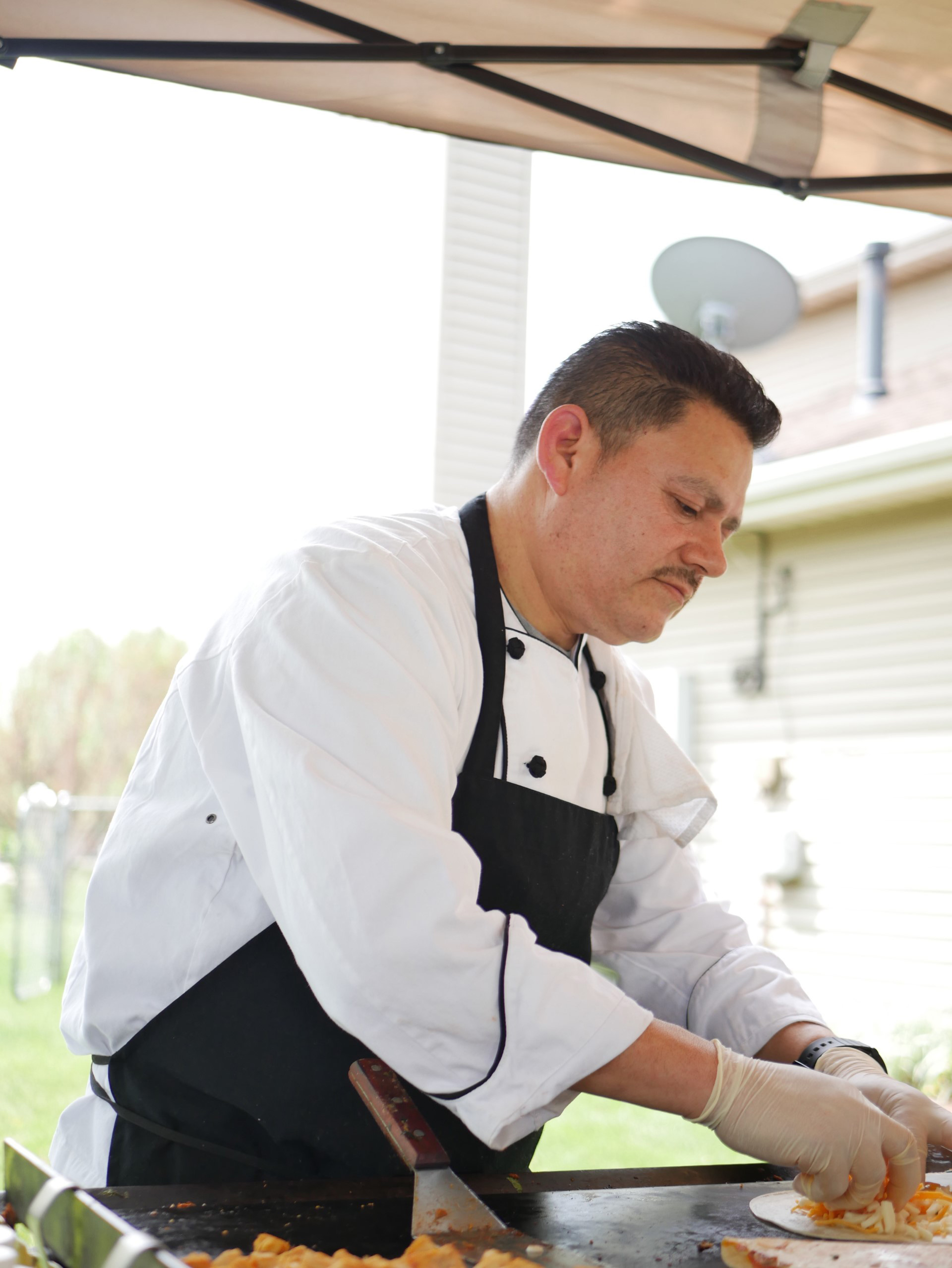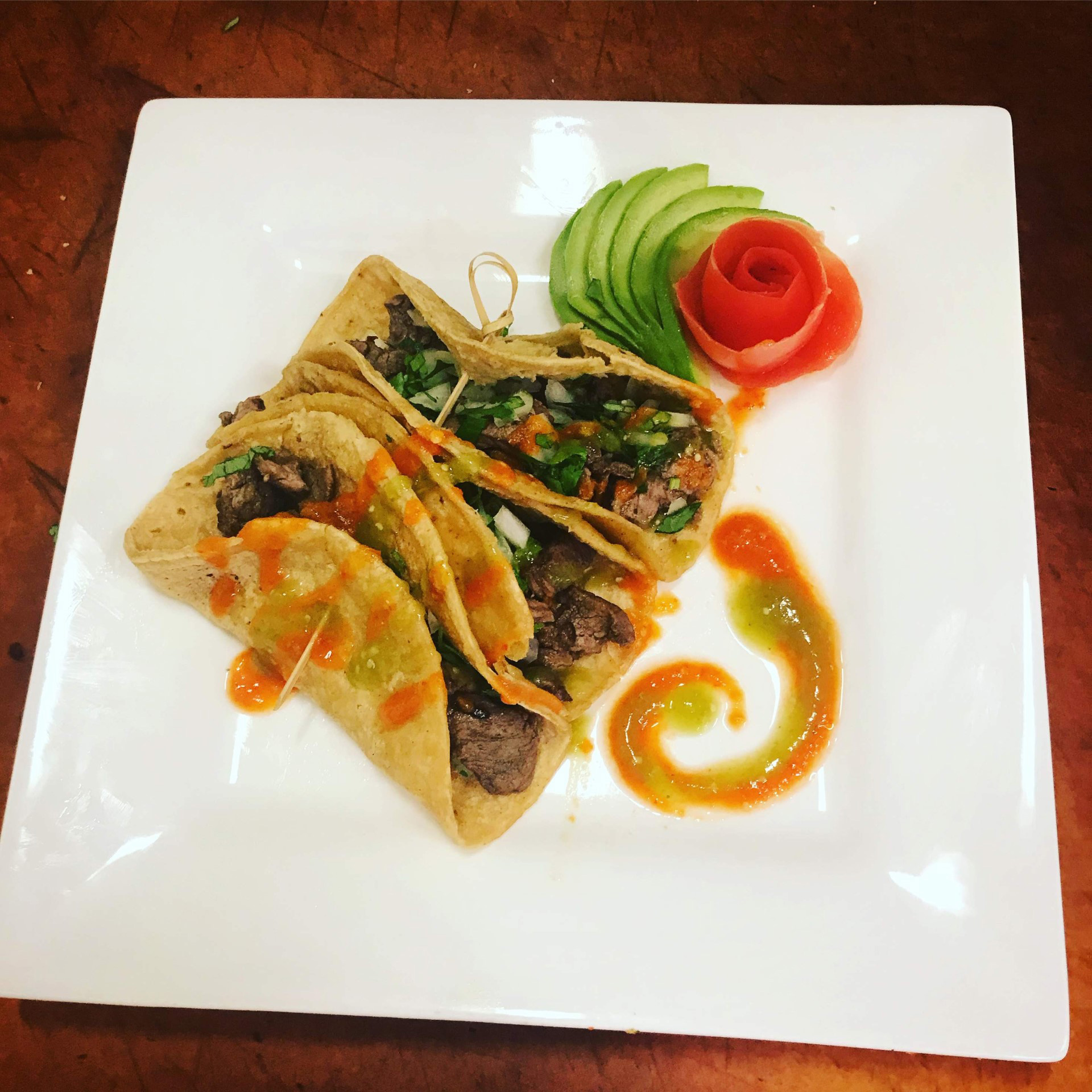
Chef Rudy Ortiz drew on family recipes to help design the menu at La Fonda.
Boilermakers are enjoying the tastes of Mexico at La Fonda, the newest addition to Wiley Dining Court.
La Fonda evokes an image of a comfortable, family-owned restaurant for Purdue Dining & Culinary. Chef Rudy Ortiz has designed a palette of flavors with this image in mind. La Fonda features authentic Mexican cuisine that draws from family recipes and traditions, as well as careful ingredient selection to achieve the right taste.
When the time came to redesign the dining court station with a new offering, Ortiz started thinking of the places and recipes he and his wife, Xochitl, enjoyed growing up.
“I started looking for recipes from my background,” Ortiz says. “My wife and I are from different states in Mexico. She had a bunch of recipes from home and I did too, so we combined them together and La Fonda appeared. We’re still working on different recipes. This is just the beginning.”
Ortiz comes from a family of 12, including nine women. In the area of Mexico where Ortiz grew up, men traditionally worked in the fields while women were primarily responsible for domestic responsibilities like cooking. It was at the request of his older brother, however, that Ortiz first learned to cook around the age of 10 and began cooking for his family. Their father had a garden full of vegetables such as peppers and tomatillos, as well as spices and herbs, that helped provide the foundation for his love of cooking.
These roots can be found in the dishes served in Wiley. Ingredients are locally sourced through Indiana distributors when possible, with special attention paid to acquiring whole herbs and spices to ensure the best and most authentic flavors. Ortiz also worked with Dining & Culinary’s purchasing team to carefully select corn and flour tortillas from Chicago-based El Milagro, which he calls the best tortillas he’s had in the US.
Many of the dishes carry the names of people in Ortiz’s family. Pork Al Pastor tacos carry his wife Xochitl’s name, while Rudy himself contributed a Spanish rice recipe. The street corn is named for their first-born grandson, Marlow. Lillian Guzman, a production supervisor in Wiley, also contributed a poblano rice recipe that bears her name. Naming dishes for those who contributed the recipes is a way to honor their contributions.
“A lot of people were inspirational and we wanted to make sure their names were on the recipes,” says Rachel Cavanaugh, the residential dining manager of Wiley.
Translating recipes from family servings to large-scale production requires testing and training employees to prepare each dish correctly. In some cases, food must also be prepared differently to serve at a large scale. Some dishes may have to be baked instead of steamed in pots, for example. Cooks and production coordinators are encouraged to perform taste tests throughout the cooking process and note any adjustments that are needed. Once the proper taste is achieved, the recipe is recorded and entered in Dining & Culinary’s CBORD system so it can be reproduced consistently for students and customers.

